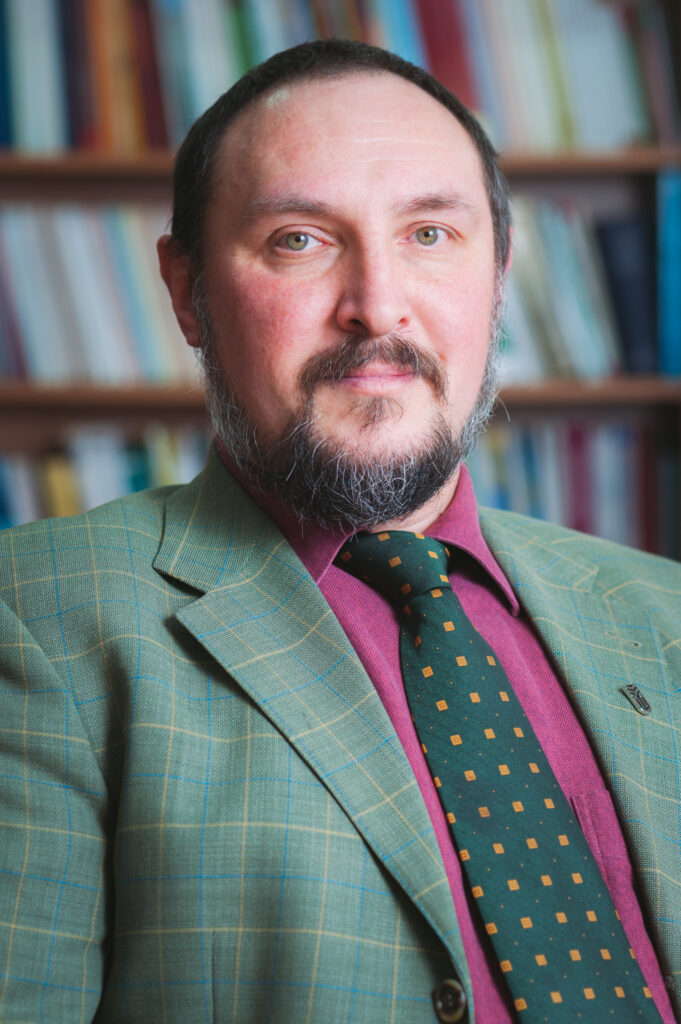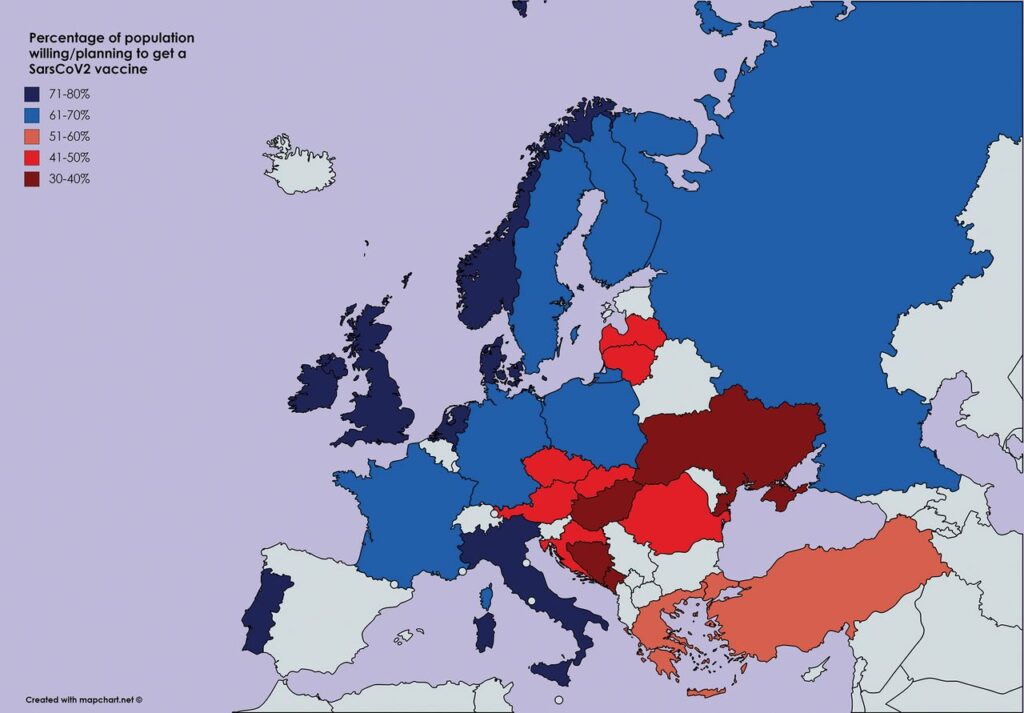The anti-vaccination movement is not new in Romania. While governments all around the world are working to vaccinate people as soon as possible against the coronavirus – which, according to scientists, is the only viable way to fight the disease – several voices are raising awareness of the alleged negative effects of the vaccine, urging people not to fall for virus believers and avoid being vaccinated. László-Attila Hubbes, assistant professor in the Department of Social Sciences at Sapientia Hungarian University of Transylvania, spoke with maszol.ro about the conspiracy theories linked to anti-vaccination and recommended communication strategies to increase vaccination willingness.
The university professor told maszol.ro that not believing in the existence of coronavirus is more general than being anti-vaccination, so it may be possible that some people are not really against the vaccine but deny the existence of the new virus. Quoting the philosopher Gábor Kardos, he thinks that anti-vaccination and vaccine skeptics should be differentiated.

“Gábor Kardos separates out the anti-vaccination people, who are very opposed to vaccination; most of them don’t believe that coronavirus exists, and they base their opinion on conspiracy theories. However, the vaccine skeptics are not necessarily virus deniers: They doubt the effectiveness of the vaccine due to their rapid development as well as the lack of coverage and the lack of clarity on any long-term monitoring process. The third category consists of those who are precautious about the vaccine, people that are not against vaccination in general but have reservations about this vaccine. This is not only because these vaccine variants have been created so quickly but also because several large, global drug companies have followed their own economic interest and are influenced by the governments and economic interests of several Western and Eastern countries. There is tough competition; they not supporting each other and are actually trying to undercut each other’s vaccines. Of course, there are vaccine believers. We can talk about the more critical or more trusting vaccine believers, those who have faith in medicine and the pharmaceutical industry and think that a fast vaccination campaign may successfully stop the spread of the virus and allow for herd immunity to develop,” László Attila Hubbes told maszol.ro.
When talking about coronavirus conspiracy theories, the university professor said that some people believe that the virus was developed in different laboratories for warfare or for genocide. According to other theories, the virus kills those that are weak and not worthy and spares those who are protected or stronger, and the vaccine does the same thing. Other theories, the more popular ones, state that vaccine is a way of injecting a microchip into everyone, or that due to the vaccine, the 5G mobile technology will affect people, stating that the vaccine is basically an obedience serum. Some also mention human experiments, or different hidden or public profit schemes, which are true in some cases, the assistant professor explained. “If we take a closer look at anti-vaccination or virus-denial discourse, in some cases the word herd immunity is suspicious. Herd has a negative meaning in the texts: It refers to a bleating, obedient group of people that would do anything if asked and can be influenced by the media. So basically everyone that is not aware of the truth,” László-Attila Hubbes told maszol.ro.

According to some beliefs, there is a strange contradiction between the fact that people eat food without knowing what they contain but have doubts about the components of the vaccine, maszol.ro pointed out. László-Attila Hubbes said that this is not a contradiction but that in fact these two attitudes are linked: More and more people are more conscious about their food consumption, so precautious behavior toward vaccine and pharmaceutical products is understandable.
According to László-Attila Hubbes, it is somewhat understandable that people doubt the long-term effects of the vaccine, which was developed in a single year often with the joint effort of medical and pharmaceutical laboratories. “If people would read the research reports, the picture would be more nuanced, but they don’t because most of them are written in inaccessible scientific language, which requires special education,” Hubbes pointed out, adding that the trust in science has weakened since the second half of the 20th century.
“Anti-vaccination is spreading. For example, our and our parent’s generation in this part of Europe have vaccinated themselves without hesitation, and it never came up that authorities would like to vaccinate us with autism or would oblige us to obedience. But, in Western countries, especially in the U.S., this was a widespread discourse. In the case of the younger generation, their skepticism came from the West,” the university professor explained.

Hubbes also said, based on EU statistics, that the proportion of virus deniers and of those who refuse to follow the coronavirus measures is higher in Eastern countries. However, the willingness to vaccinate is rising in Romania, growing from 40 percent in January to 55 percent this month.
Anti-vaccination attitudes are not new in this country: Resistance often surrounds the administration of a number of vaccines. This phenomenon is well illustrated by the fact that the vaccination law has been gathering dust in parliament for a long time. The latest draft does not specifically oblige parents to vaccinate their children, parents who doubt the efficacy of vaccines only have to attend some counseling, and there may be fines for those who do not show up. However, László-Attila Hubbes stressed that adopting strict vaccine legislation would just worsen the situation and would increase the resistance, even though the obligation of childhood vaccines would only benefit the society.
To increase the willingness of people to get vaccinated, the authorities should use new communication channels and social media, Hubbes stressed. According to the professor, authorities should use mass media to present facts to increase willingness, avoid manipulation or emotional involvement, and communicate through social media, as a large majority of the population does not believe in traditional media. Social media has a larger effect and can possibly change attitudes. But they cannot communicate via “statements that undermine the non-believers, but with very simple, clear language, just the facts, with no distortions,” assistant university professor László-Attila Hubbes recommended.
Title image: Vaccination willingness is increasing in Romania, growing from 40 percent registered in January to 55 percent. Photo: Artur Widak/Getty Images